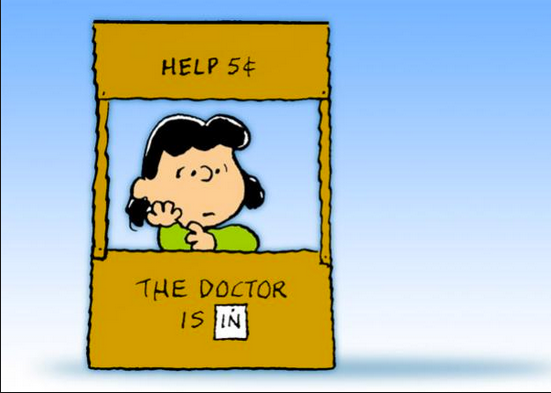TO LEARN TO WRITE YOU HAVE GOT TO WRITE (and read) A LOT.
DAILY ISN’T A LOT. IT’S THE MINIMUM. ALL DAY IS A LOT. ALL NIGHT TOO IS STUPID (We writers need our sleep).
THIS SHOULD ALL BE SELF-EVIDENT, BUT IT DOESN’T SEEM TO BE. PEOPLE (All of us, I suspect) ARE WEIRD!
The following piece is written by Teresa Buczinsky (typical Irish name) and she makes her point well. I can’t overstress the importance of it—if you want to become a writer. And, yes, I found it on www.medium.com – which I guess you could call the thinking-person’s Facebook (if you were being a little unkind).
Initially, it doesn’t really matter what you write about because the whole idea is to transform the rather unnatural act of turning thought into the written word into a reflex—something that is hard-wired into your muscle memory.
That may seem near impossible at first—but if you persevere (and aren’t flattened by stress, frustration, old age, or a terminal heart attack) you will be amazed.
“I can never think what to write about,” is not a valid excuse (though the one I am given most frequently). As my friend, Ian likes to say, “Get a grip!”
If you really can’t think—you are dead. Think about that!
If your thoughts are muddled—that proves you are no more than human (good to know) but be relieved to discover that one of the great benefits of writing is that it promotes order out of confusion—or should. Simply put, you have to think clearly to write clearly. You are forced to—and by your very own self at that. How much more democratic can you get!
It can be a painful process—and take years (decades?) but it’s fun when you get there. Or so they tell me…
Now, let me introduce you to Teresa—who wrote what follows (pretty damn well).
Teresa Buczinsky Division Technology Coach, Teacher, and Perpetual Learner

The One Writing Tip You Can’t Live WithoutIt’s in Latin, but it’s not really a secret: Nulla dies sine linea.
Maybe you don’t even want to be a writer. Maybe you just want to be good at writing when you have to do it. Maybe you want to stop feeling humiliated every time you respond to a friend’s post on Facebook or write a thank you card to your aunt for the handmade sweater she knitted for your birthday. In either case, if you want to be a decent writer, the one thing you have to do is write. You have to write a lot. It doesn’t matter if the writing is so bad that every time you reread it, your curl into a ball of disgusted shame. You still have to write.

Photo Credit: Physics and Astronomy Art Group
Last week, blogger Joe Bunting wrote about a high school pottery teacher who divided his class into two groups. He told one group that all they had to do was produce one perfect pot by the end of the year. If they accomplished this goal, they would earn an A in the class. The second group had a different goal: they had to produce fifty pounds of pots by year’s end. The teacher didn’t care how good the pots were. Fifty pounds would earn an A for the members of this group. Can you guess which students produced the best pots by the end of the year?
By school’s end, the 50-pounders were throwing fabulous pots. The point here is that if you are trying to get better at your craft, you should aim atquantity rather than quality. If you want to be a better writer, aim to writemore rather than better.
And you have to write every day. When I say “every day” I mean every single day. This does NOT mean you can skip five days and then make up for it by writing all day on Sunday. Okay, yes, maybe you can take a day off now and then, but not very often. You have to write (almost) every day. Here are what famous writers have to say about writing every day:
- “Every morning between nine and twelve I go to my room and sit before a piece of paper. Many times I just sit there for three hours with no ideas coming to me. But I know on thing: If an idea does come between nine and twelve, I am there ready for it.” —Flannery O’Connor
- “…most important, you have to write every day…the fact is that most productive writers show up for work as dutifully and with as little fanfare as any civil servant.” — David Bradley
- “You have to read and write on a daily basis. You have to be utterly vulnerable on the page and utterly ruthless in revision.” — Chris Offutt
- “I worked every morning…. Every single day, regardless of whether I had a novel or a story or nothing, I would be there…just like you would be for your job…even though you don’t know if any customers are going to come, you have to be there just in case.” — Daniel Wallace
- “If you want to be a writer, you must do two things above all others: read a lot and write a lot.” — Stephen King

Stephen King at his writing desk. Photo Credit: Open Culture
To see a little more of what Stephen King has to say about the importance of a daily writing practice, take a look at his advice in his book, On Writing.
Are you convinced yet? If not, you will be. Most of you will have written 145 pages of first draft material by mid-December, and you are going to be amazed by how much you grow as writers. Your writing practice will be your Christmas present to yourself this year.
Of course, if you are like most beginning writers, you don’t believe me, and you are now beginning to panic.

Photo Credit: Waking Times
You may even be thinking that you should stop and see your counselor during your lunch period because this class can’t possibly be for you. You’ve never even written twenty pages in a single semester. How can you possibly write 145? And what will you write? You have no idea where you should even begin. You’ll probably just sit in front of a blank computer screen for days on end, crying. Or worse, you’ll comfort yourself by starting a World of Warcraft marathon so you don’t have to think about the 145 pages of work waiting to be completed.
Allow me to put your mind to rest. In the twenty-five years I have taught this class, I have never had a student who was not capable of writing two pages every day, six days a week. That’s all you will have to do to have 145 pages by mid-December. Much of this writing you will do in class. Some you will do outside of class. Your goal is to write for at least twenty minutes outside of class every single day.
What will you write about? Whatever you want to. You can write stories about topics that interest you, song lyrics, poetry, theatrical scenes, fan fiction, or narrative pieces about personal experiences. Some of you already know what you want to write about. Maybe you have a story you began over the summer. Maybe you’ve been carrying around an idea for a long time, and now you finally have the chance to get it onto paper. Others of you may have no idea how to begin. For those of you who need help getting started, here are a few ideas:
A Word of Advice
Photo Credit: The Toast
Although you shouldn’t care much about quality when it comes to first-draft material, you will find that your early drafts are easier to revise and develop into finished stories if you avoid writing in the style of a traditional diary: Dear diary, Today was a great day! Tony smiled at me in Physics. I think he’s going to ask me to prom. I’m worried about how I will afford it if he does; if I ask my mom for more money, she’ll have a fit.
This kind of writing is useful as a chronicle of your life and gives you helpful practice with language and expression, but you and maybe your more generous family members are the only ones who will find it interesting. If you want to write about your personal life, get in the habit of showing the experience instead of talking about it. Often, using the third person point of view rather than the first person will make this easier: Tony flipped his hair out of his face and tilted his head to one side. He felt Claire watching him from across the lab and turned toward her, smiling. Her face flushed red as she smiled back, then nervously turned away, fumbling with the pages of her physics book.
Can you see the difference? Using the third person to provide an experience for your reader will help to engage them.
Now you are ready to begin writing. Tomorrow, we will start class by sharing a little. Come ready to tell us what you wrote about for your first 20 minutes of Creative Writing homework.
Can you now guess what “Nulla dies sine linea” means?


No comments:
Post a Comment